|
7/20/2017 Abandonment By Kathryn Lee WillgusAbandonment It was two in the morning, but so what? Will knew that Annabelle was always ready for an adventure, and never shy to drag him along with her. She spoke enthusiastically into the phone, “Just because this small town rolls up the sidewalks at 10 p.m., doesn’t mean we can’t have fun.” They met at the abandoned lumberyard and climbed the wrought iron ladder to their favorite rooftop hideaway. These buildings had been useless for years, and their once utilitarian purpose gave way to a concrete wasteland that was out of place in the background of this rural, southern, white-bread town. In spite of the broken windows, trash left behind from its original abandonment, and the message Fuck the World scrawled on the wall, this was their home away from home. These late night phone calls and spontaneous get togethers pretty much summed up Annabelle’s entire outlook on life from Will’s perspective. If it made her happy, she did it. “Smoking is bad for you.” Really? I’ve never heard that before. “Drugs are bad for your brain.” What do we really do that’s good for our brains? “What you and Will are doing is really fucked up.” What, I can’t have friends now? He had heard her repeat these conversations with friends and acquaintances time and time again. He was always amazed how such an untroubled person could be so responsible. Will met Annabelle through his brother, Steven. Steven thought he was the best singer, songwriter, and guitarist of his age. He had been saying that ‘he was the man’ and could do anything he wanted since the day he turned eighteen. It turns out he couldn’t do anything he wanted, considering he couldn’t hang on to the one girl that was actually worth his time. Steven and Annabelle knew each other biblically, but that didn’t last for long. It made no sense to Will that either he or his brother were worthy of her attention, and Will often wondered whether or not she had traded in one big mistake for another. Will liked to think he was her partner in crime. Shockingly, he was her sober partner in crime. Will was a high school junior with no car, a part-time job that he didn’t give a damn about, and no motivation. They had only been friends for one summer, but already they had explored the whole town and had begun branching out to other places. Annabelle provided the means for an adventure, and Will had the interest and courage for them both to continue. She wouldn’t admit it, but he was the only person she liked seeing haunted houses with because of his chronic hilarity. Their mutual love of anything scary and their inconsolable youth made them feel like they could take on the world. When they met at the lumberyard, Annabelle suggested they drive down Peabody Rd. and go to a house that had been effectively deserted since the seventies. Will was the only person to whom Annabelle could admit fear, and even then she did not complain but just fell silent and let her shaking flashlight speak for her. He could tell she really believed in that stuff. At this house, a huge portrait, presumably of the previous owner, smeared with excrement greeted them on a porch covered in broken glass, dirt and creaky rocking chairs. Inside, insulation fell from the ceiling and walls and overdue insurance notices were scattered across the floor. Crushed Pabst Blue Ribbon cans told them that they were not the first dumb teenagers to have wandered into this delinquent’s paradise. Annabelle didn’t want to go upstairs, but Will put his hand on the small of her back and coaxed her gently up to the second floor. “Come on! We can do this. This whole trip will be pointless if we don’t see the entire house,” he persuaded her, “we have to see it for ourselves.” They reached the top of the stairs, they found bedrooms still complete with mattresses, dressers, and closets full of clothes. Someone’s grade-school spelling and grammar quizzes from decades ago were strewn across the floor in disarray. Other than the copper wiring being stripped, it seems that most of the place had been left alone. “Will, we should go now,” Annabelle said, hesitantly. As he looked up at her in order to produce some clever response, he immediately noticed that she was standing directly in front of another staircase. “No,” he said quickly, “we’re going up there,” as he pointed his flashlight above her right shoulder and scrambled to get out of the mess he had created on the bedroom floor. “Fucking Christ, Will, I am not going up there with you!” she yelled, exasperated, as if she knew what was coming next. Annabelle turned her back on him as he began to make his ascent, but she couldn’t stay mad for long; half terrified and half fascinated, as he knew she would be, she turned again and let the beams of her flashlight follow him up the stairs, herself staying cemented on the second floor. Will climbed the stairs, only half way to appease his trembling partner, and began to look around. He didn’t see much of anything, but he didn’t say that to Annabelle. “Oh wow, this is kinda cool, actually…. You should see it. Well, there’s not really much up--” he paused for a moment, cutting himself off, “what the--wait, what the shit is that?” “What is what, Will?” Will came down the stairs and looked Annabelle straight in the eye, “I don’t know, but we should leave. Now.” They hurried down the stairs and out of the front door; on the porch he told her not to look back. They walked quickly, him rushing her, but she wouldn’t run, and he thought it may be out of pride. “I have to tell you something,” Will whispered once they could no longer see the house from the trail. “What?” Annabelle looked at him, worried and breathless, and he thought she was trying to anticipate his words. “I didn’t see anything in the attic,” he said in the same tone of voice, but with a huge, triumphant grin spreading across his face. Annabelle stopped dead in her tracks and stared at him for an uncomfortable number of seconds. Her eyes looked as if they might pop out of her head, and Will was laughing even before she began screaming. “You didn’t see anything?!” Her voice was a crescendo of anger, “seriously?! Well, you can fucking walk home, you goddamn prick. Give me my flashlight back! Oh, my God! Didn’t see anything! I can’t believe you…” her speech trailed off as she power walked ahead of him and Will, bursting with laughter, had to slow his pace to keep his belly from aching too much. They drove through town, back toward the lumberyard, Will trying to get Annabelle to speak to him the whole time. The lumberyard had been Will’s place. The emptiness was endearing to him. Sometimes it made him feel so small, and other times he felt like he could fill every dilapidated corner of the compound with his thoughts and emotions. Will had brought Annabelle there after the first time they investigation one of the biggest, most famous “haunted houses” in the area. He was not sure why he brought her there. He figured that, if that place could bring him such tranquility, then maybe it would do the same for her. They had a regular routine. She would pick him up or he would walk (a whole five minutes) from his dad’s house. Sometimes it was planned. Sometimes, Annabelle would call him, giggling into the phone or completely deadpan, and demand that he meet her. Will was okay with this. They talked about everything, from their favorite TV shows, to medicine, to the existence of aliens. They would dangle their feet over the edge and watch for the parting of the clouds--sometimes it seemed as if it happened just for them--so they could look into the night sky. Sometimes they sat in complete silence. Mostly they just laughed. They climbed the ladder for the second time that night and sat and looked at the stars. “Gimme this,” Annabelle said quietly as she reached for his hand and Will’s chubby fingers, which always made her laugh. He didn’t even have to try. “It’s not that funny!” Will exclaimed as he launched a tickle assault on her sides and belly. She laughed so hard she was crying and Will enjoyed having the slightest power over her. He tickled her into submission, her back flat on the roof and his face so close to hers that he could smell the cigarettes on her breath. He pulled back. “You dick,” Annabelle said, the laugh lines on her face falling flat. She got up and moved around the roof, shooting a hard glance over her shoulder at Will, waiting for his response. Will tried to seem confident and self-aware around Annabelle, but when he was around her he was always using the wrong words and tripping over his own feet. Sometimes he hit the nail on the head, like that prank he pulled tonight. He thought back to that moment just an hour before and tried to channel that smoothness and charisma. He stood up to follow her, but instead he somehow ripped his pants on the concrete roof, and everything he had fell out of his pockets, including--to his mortification--a condom. Why did he even have that? What would she think he was trying to do? Out of embarrassment he picked the thing up and threw it off the building. He didn’t know what else to do. Annabelle laughed hysterically, while Will bent down to shamefully gather the rest of his belongings. He became aware of her growing silence. He jolted up and tried to reclaim his composure, but it was too late. As he turned around he found himself in her arms. He thought briefly about how she works in the most mysterious ways. Annabelle’s petite stature, small features, and the soft contour lines of her body made Will look like an ugly baseball player, contrasting his broad shoulders, sharp chin, and a large and slightly crooked nose. He admired those features, perhaps a little too closely, as he watched her cock her left eyebrow and look at him incredulously. “H-hi,” Will said hesitantly. “Hush,” Annabelle whispered, nodding her head slightly and resting her finger to his closed lips. “Is your mom out of town?” She usually was. After his dad left, Will’s mom was left with all the bills and a house she hadn’t even liked. Environmental stewardship was her passion, but it was a tough job and it meant that she was gone all the time. He nodded his head, as if to say yes, but before he could finish the motion she was already down the ladder on the way to her car--a piece of crap from the 90s that she was only proud of because she bought it all by herself. He took her to his basement--a man cave, complete with couches, beds, a flat screen TV, and Xbox--without even thinking. They watched American Werewolves in London. Will didn’t hear a word of it over the ringing in his ears. The only thing he saw was the light from the screen reflecting off the bristly, blonde hairs on her legs and how they looked softer as his eyes moved up her thighs. She had neglected to shave. He imagined her saying, in a tough voice, Well, I’ve never had a man shave his legs for me. Will simply called her “Anna”; he did not have the strength to say the third syllable as one of his hands rested on her knee, and the other reaching for her face to bring her lips closer to his. He couldn’t recall if another woman besides his mother had seen him naked (and that was when he was still a kid) and it scared him. It was as if he was watching an actor play a way better version of himself on TV. Like an out of body experience, she was naked and he couldn’t recall exactly how. She opened her body to him and Will could barely comprehend her beauty. He kissed her hard on the mouth and she anchored her fingers in his curls and moaned. He kissed her neck and breasts and hips and he looked into her eyes and she nodded, with heavy lids, that she wanted him to continue. She moaned more and more as his tongue played with her lips and opening and he could not believe he was doing this correctly. Her body shook as he reached her clitoris and he focused there, reveling in her pleasure. She mumbled something to him, a question maybe, but he couldn’t stop long enough to ask her to repeat or answer her. He didn’t want to stop at all, not for anything. She was asking him if he had a condom. Will pulled away to where he and his brother kept some and thought quickly back to the condom he shamefully threw off the roof. What a waste. He slipped the condom on as gracefully as he possibly could; they came together and Will couldn’t think about anything but the pleasure, almost debilitating him, that coursed through his entire body. His ecstasy was growing and he was feeding off of her movements and noises, until they became more forceful. Her palms on his shoulders were no longer pulling him closer; Annabelle started pushing him away. Her knees dug into his ribs. “Will….Hey, listen….I can’t….Please, don’t….Will, I asked….Stop! Do you hear me? Please, stop it….Get off me….” Annabelle wailed, trying to get through to him. The movement of her lips and the desperate pleas lingering in the air came together, and he collapsed in the corner, realizing what she had been saying and slinking away from her, with a knot that had formed instantaneously in his stomach one step behind him. She was silent, but even in the dark he could see she was struggling for air. Will tried to comfort her, moving his fingers gently through her hair and caressing her shoulder, but she was not letting him in any longer. “It’s okay,” he told her over and over, lightly resting his hand on Annabelle’s shoulder, her back turned toward him. But he didn’t know what else to say. He hesitated and spoke almost silently, “What’s wrong?” “I’m broken,” she coughed up the words like a cyst, “I’m ruined.” Will did not know what that meant. He wanted more than anything to know what that meant. He tried to comfort her anyway. “Come on, you’re not broken, you’re--” he was cut off by her loud sobs. He had no idea what was happening and no clue if it was his fault. “Oh, for fuck’s sake, Will, there’s something wrong with me. Why am I crying? Weren’t we just having sex and enjoying the hell out of it? I definitely want to. I don’t understand…” she said, her sentence trailing off as she had only enough breath in her lungs to accommodate her sobbing. “I think I’m fucked up.” “Hey, hey, shhh… it’s okay, I don’t care about anything of that. I just need you to know that you are worth so much more than this. One day you’ll see what a tiny speed-bump this was in your wonderful and fulfilling life,” he tried to sound as convincing as possible. Somehow that worked. She still wouldn’t look at him, but her cries became softer. “You are one of the best friends I’ve ever had, Will,” she mumbled under her breath. He believed her. They watched Supernatural for hours. It felt like it could have been days. Will made her laugh with his stupid jokes, celebrity impressions, and his stubby, little sausage toes (which he didn’t mind if it meant she would feel better). She made fun of his middle school hair-do and his awkwardly tiny nipples. Will tickled her furiously and ultimately won their little battle by pointing out, with little originality but a lot of truth, that she was only five feet tall. They smiled at each other so naturally that it was almost hard to believe that hours before they had such an emotionally ravaging experience. She tried three times before she could actually leave him. “Nope, this doesn’t feel right,” Annabelle said, almost to herself, as she paced from her car back to Will’s arms. He said nothing, but allowed her to take as long as she need as he held her. She kissed him passionately over and over again. She didn’t want to go and he didn’t make her, but they had been together for hours and he could see that lack of sleep was having an effect on her. She glanced at the clock. “Do you have work?” Will asked her. “Technically…. yes,” she replied hesitantly. “Holy shit, Annabelle, you need to go. You could maybe get an hour of sleep before…” “Nope. No, I don’t want to leave you.” Will knew that he should but couldn’t find it in himself to let go. Annabelle kissed Will once more, giving him a smile that reflected some exhaustion and some whimsy. He pretended not to see how heavy and puffy her eyes had become--it didn’t really matter, he enjoyed the light that came from them anyway. Annabelle finally detached herself and walked to the car, Will’s eyes following her the entire way. She begrudgingly kicked her fender and got in, slamming the door, as if she was all of the sudden enraged with whatever force that compelled her to return home. He heard her tires creak and squeal as if the machine didn’t even want to tear them apart. Will didn’t know it at the time, but that would be the last time Will and Annabelle saw each other for a very long time. Three days later, she was gone; on the road to some far away state that might as well be a foreign country, chasing a dream, and willing her broken down car to drag her far away from this old town. They were supposed to meet one last time, in their favorite spot, at 2 a.m., but he couldn’t bring himself to say goodbye. He ignored her calls, pretending that he was asleep, feeling sheepish and cowardly and afraid. < Messages Annabelle Details Yesterday 11:45 PM When do you want me to pick you up? Will? Today 12:35 AM Are you awake? You said you wanted to hang out before I left What the hell? Dammit Will! Today 9:47 AM Sorry, I totally fell asleep on accident. I hope you have a great trip. Be safe. He could not manage to go see her that night, just like he couldn’t think of how to tell her all the thoughts swirling around in his head. Did he feel guilty? Yes. Was it his fault? No, but…. Could he fix it? The answer to that question was an overwhelming, resounding no. No, all he could do was pretend. But then she was gone and he hadn’t said bye and he didn’t have a way to get to her and he felt stupid and angry. How could she just leave? He wondered, but he grew to understand. Annabelle cried on the phone the first time he called her back at school, telling him again, “You’re the best friend I’ve ever had.” She called him occasionally when she needed to talk to someone who, as she said, actually mattered to her and actually cared. Sometimes it was hard for her to understand what was happening in Will’s life, but he understood. He didn’t want to talk about him anyway. She apologized for not keeping in touch, and Will tried to explain to her that he had no expectations of her from so far away. She was going to do her own thing, just as she had been for years. Despite whatever was going on--gossip in her chapter meetings, back to back research papers, or her drunk shenanigans--he always managed to make her laugh out loud, even from hundreds of miles away. Will knew that, even though he felt abandoned, Annabelle felt freed. And he was happy for her. 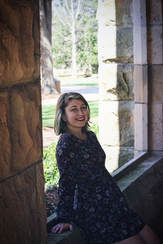 Bio: Kathryn Lee Willgus is an aspiring writer from Georgia, based in the quaint and quirky college town of Charlottesville, Virginia. She received a Bachelor of Arts in English and Russian and a Creative Writing Certificate in fiction from Sewanee: The University of the South in May 2016 and spent the last nine months in Russia on a Fulbright U.S. Student Award. Kathryn’s work appears or is forthcoming in Coldnoon and Nailed. 7/19/2017 Poetry by Jane Rosenberg LaForgeHands to Gasoline In the Baltimore winter I was pumping gas when the nozzle exploded, and I lost my only pair of gloves to a shower of stink and flammable properties. I spent the remainder of that season naked at the palm and fingers, having affairs and looking for a job, smelling of panic and consequences. I begged men to make of me their lantern, their torch, a geyser marking the casual nexus. My stained boots and blue jeans became my uniform, my public face, my bomber jacket dangerous, clothes that had the woman feign courage beneath the delicate. On a visit to New York, I bought wool tights from a street vendor at a bargain that fit my narrative. But no gloves as my flesh came to revel in rock salt and black ice contact, to the dampness that chilled sinews and tendons to a spindly rictus: I was invincible. My knuckles at the keyboard were precisely scabrous. A dancer keeps her brains in her feet, but mine were bereft of arches and confidence, so everything took to my hands until I took them for granted; just as my mother ignored the subjugation of hers to arthritis and skin conditions she picked up from handling other people’s finances. I never wanted to be like my mother. Who does, when there are so many more limbs, so many more options, until the pull of springtime, the paring down of layers and protections, the setting of my mother’s searing manias and indomitable depressions. Too many dilemmas, kids and husbands, the mind wanders into stories and dead calms, the halcyon, and albatross, a feeding frenzy once the predators are done. My shallow, rapacious hands, separated now by years from their misdemeanors and excesses. It’s called symmetry, the arrangement of mammalian characteristics, what makes us imperious despite the reeking quality of our coarse charity and of our innocence. Source They have found where it hurts but what does it matter when the hurt has drawn a cavern for the hurt to travel along: multiple patterns subrosa, subterranean to the dome that is muscle and fat, and electrical trenches where answers fall to impulse and environment. The normal formation is, in its profile, much like a man on horseback, delivering on a quest, while the disease, cross-sectioned, produces a pair of wonders, stifled yet moaning: penitents obscured by sackcloth, you could mistake them for lepers in a filmed version from Hollywood, where else? I rubbed my face on my roommate’s blanket and I looked just like that! A character in a biblical epic. She flipped out, said I was spreading what I merely imagined. You might not always go back to the beginning, the first hurt, in extremis or at rest. The source becomes vestigial, the originating injustice unaddressed, because it is the recurring sensation by which we are romanced, offense giving way to symptoms and pity we do not know if we deserve, and yet we instinctually demand. Comparing Tragic Siblings Her sister looked up at squirrels to find snow in her eyes. Mine looked down and couldn’t locate her toes, lost in the catalogue of her fatty anatomy, but not the brain, it turns out; that's all that counts. There is no margin of error in assembling samples here, just lipids and membranes and the signals that move them, sometimes too fast, sometimes not at all. It’s all relative, I guess, if you don’t know the actual martyr up close and personal. She told me to focus on what I know, and she knew better than I did what I knew and how I came to know it, but what I really tell people is to think before they dream; not to dig holes and expect their enemies to jump in them. Also, the birth of a star cannot be distinguished from the death of another no matter where you’re standing. We comprehend forward momentum as fantasy. Pearls are dust, rain is nacre, and the desert must have a great deal of patience, to see its contents transformed into the opposite, its sibling in the salt water with the same tragic results. 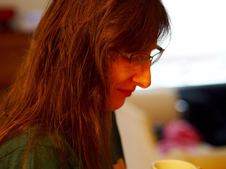 Bio: Jane Rosenberg LaForge is the author of "An Unsuitable Princess: A True Fantasy/A Fantastical Memoir" (Jaded Ibis Press 2014) and the forthcoming novel "The Hawkman: A Fairy Tale of the Great War" (Amberjack Publishing). Her next full-length poetry collection will be "Daphne and Her Discontents" (Ravenna Press.) jane-rosenberg-laforge.com 7/18/2017 Poetry by Kendall HoeftSongs of Summer I. How He Found You father and son When the black wood bee found you, he was roaring. He roared when you ran through the sprinkler. He roared when you laughed and cried. He roared when you came in the front door, dripping. When you tell me about the roaring black wood bee, how he always found you, I want to put him in a jar of liquid. I want to shake him, for you. But when I tell you this, you only speak of the smell of honeysuckle, indian summers on Avenida de los Flores. As you reminisce and laugh, I recline, soothed and fading, as we inhale the deepest breaths of jasmine and geranium. II. How You Found Him As your mouth moves specks of summer, flecks of yellow light effuse this Florida sunroom. Childhood stories revive memories of that suburban backyard utopia-- southern California in the 60’s. You caught bees, shook them comatose, buzzed bodies dulled by the repetition of liquid in glass. You pinned them to wood, then waited; wanting to watch death overcome. Did you know then he wouldn’t come back? III. Every last Tarantula Hawk You used to believe she was a child-created legend, your boy-mind birthed fantasy. Her long, black-blue body bigger than a splayed hand. Dark legs, red wings-- hooked claws. This creature would find the perfect hairy belly, paralyze the large spider with a painful sting then shave his abdomen clean and infest her new nest with a spider-wasp egg. You spent boyhood summers watching the sky for these huge wasps, looking for their spiders in the ground-- poking ice plants, digging for life under blackness. Two decades later, on that Colorado camping trip, the origin of my arachnophobia, you taught me to tease tarantulas from trapdoors with a relentless feather. Now, even after hours, you still poke into that large web to see what you can awaken. What we don’t speak of hushed tones, hushed tones. We wouldn’t want to stir the water, or start a fight. Keep positive, chin up. The rest-- under the rug. Or in the backroom, where father is in his daughter’s bed. Hush. We want to be happy. Under quiet floorboards, lie little pieces of who we are-- muted in polite, hushed tones. After Glass Hear the crackle of ice on a hundred small lakes. Little lines jag out like hangnails, fragments of clear-- breaking off and jumping, then breaking apart again. We are held together by compression. Underneath the tension of our brittle surfaces we are weak-- crystalline fabrications incapable of keeping ourselves whole. I leave the shards on grey slate in my kitchen. 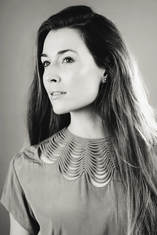 Bio: Kendall graduated from the University of Tampa’s Creative Writing M.F.A. program and currently teaches writing at Florida International University in Miami. Her poem, “How to Match the Sky,” was published in the Spring 2017 issue of Driftwood Press. Her poetry was featured by Shade Tree Creations; as she was awarded a winner in their Art Affair Writing Contest, 2014. The themes of her work include: freedom, authenticity and self-love. Last year indie-pop powerhouse Allo Darlin' announced the breakup of their band and would play their very last show in London that December. But for lead singer Elizabeth Morris this was but another chapter in an ongoing musical-life, conjoined elements that are hard to pry apart, since, as Elizabeth says, playing and writing music has informed every aspect of her life since she was a child. Coming of age in the 90's, when female singer-songwriters were on our air waves and our televisions in full force, for those who weren't there it can be hard to appreciate the ground breaking significance of that time, but for Morris it became the thing that gave voice to a life's calling, the empowered muses of song and expression that ignited an inextinguishable creative passion in her. "I think if you want to do it," says Elizabeth, "you will find a way." A great musical project's closing leads to other open doors, a new band, Elva, in her new home of Norway, with her husband Ola Innset, Jørgen Nordby and Diego Ivars is in the works. "At this stage," Elizabeth says, "it's lovely just enjoying playing music again and learning to play with new people. We're really relaxed and have these lovely rehearsals in our basement," proving that every closing chapter is but another one beginning. AHC: What has this journey in music, so far, been like for you, the highs and the lows, and what life lessons do you feel you've picked up along the way? Elizabeth: It's hard to distinguish between my "journey in music" and my life. Playing and writing music has informed every aspect of my life since I was a child. It has given my greatest friends and my husband. It's brought me to the other side of the world and allowed me to travel places I otherwise wouldn't have. I'm looking forward to where it will take us next. AHC: What first drew you to music and what was your early musical environment like growing up? Were there pivotal songs for you then that just floored you the moment you heard them? Elizabeth: I grew up in a household with lots of music. I thought everybody did! Music was always playing in our house. My dad loves to sing and my mum plays piano, so they would play together. Apart from that, the stereo was always on in the kitchen and the car. I remember discovering the balance knob on our kitchen stereo and realising I could isolate the different voices of Simon and Garfunkel - that's how I started learning to harmonise. I think I loved almost everything I heard and was always singing as a kid. AHC: Do you remember the first song that you ever wrote or played? Or that first moment when you picked up a pen and realized that you could create whole worlds just by putting it to paper? Elizabeth: I was about 14 when I wrote a song for the first time, which would have been in the mid 90s. I had been learning to play guitar for a little while, and listened a lot to women songwriters who were popular at that time. I loved Alanis Morrisette and the Indigo Girls and the Cranberries. So my first song was very angsty and terrible! It took a long time for me to write another one, I don't think I tried again until I was 21 or 22. But I do think those 90s women songwriters, along with an early love for Joni Mitchell, kickstarted something for me. I'm glad I grew up at that time. AHC: Which musicians have you learned the most from? Or writers, artists, filmmakers, teachers/mentors etc? Elizabeth: I think I've a lot from people I've played with - Paul, Bill and Mike in AD, and now Ola, Diego and Jørgen in Elva. I've got great advice over the years from Darren Hayman, I've learned a lot about songwriting from David Tattersall. Those are just the people I know though. I think you learn a lot from listening to records and sometimes deconstructing them - I think that's where I've learned the most. It's fun to talk to fellow musicians and friends about music. I've learned so much this way. AHC: What do you think makes for a good song, as you're writing and composing, is there a sudden moment when you know you've found the right mix, that perfect angle of light, so to speak? Elizabeth: I think you always know when you have something good, but that's just a matter of liking it yourself. I find I'm not the best judge myself of which songs other people are going to like. The most recent song I wrote for my new band Elva I thought was just ok; the others think it's really great. I am just always pleased if I can get a song to hang together nicely; to have a melody I like to sing and words which mean something to me. AHC: What are your fondest musical memories? In your house? In your neighborhood or town? On-tour, on-the-road? Elizabeth: I guess I would have to say from being on the road and onstage. Sometimes it's all a blur; sometimes I can recall individual moments. I hope I never forget, but it's so hard to hold onto your memories. AHC: When you set out to write a song, how much does 'where the world is' in its current moment, culturally, politically, otherwise, influence the kinds of stories you set out to tell? Elizabeth: Quite a lot, although writing overtly political songs is really hard. I actually am not so interested in bands these days that don't make some kind of statement politically. I don't really care if their music is political or not, but they have to have the right politics. At this point, if you're not engaged with what's going on, why should I think that you have something worthwhile saying? AHC: Do you have any words of advice or encouragement for other musicians and singer-songwriters out there who are just starting out and trying to find their voice and their way in this world? What are the kinds of things that you tell yourself when you begin to have doubts or are struggling with the creative process? Or what kinds of things have others told you that have helped push you past moments of self doubt/creative blocks? ELizabeth: I think if you want to do it, you will find a way. Try not to take yourself so seriously, try to write as many songs as possible and don't get hung up on one particular one. Sometimes having many different songs on the go is a good trick. If you're finding it hard to write words, just try writing a day book for a while to get you into the habit of writing. Start thinking of yourself as a writer and seeing the world from that perspective. Everybody has songs that are less good than others, and it takes a while for most people to hit their stride with it. Even Dylan started out by copying, that's a good place to start. AHC: Do you have any new projects moving forward or ideas that are percolating for the future? Elizabeth: I have a new band called Elva, based in Norway where I live now. It's a really nice project with my husband Ola Innset, and our friends Jørgen Nordby and Diego Ivars. Ola and I both write songs. I think it's a bit more folky sounding than Allo Darlin' or Ola's previous bands My Little Pony and Making Marks, but we are still finding our way. We're heading to England to record with Mike from Allo Darlin' at his studio in Ramsgate in a little while, and will have a single out at the end of the year on WIAIWYA. At this stage it's lovely just enjoying playing music again and learning to play with new people. We're really relaxed and have these lovely rehearsals in our basement where we've set up a rehearsal studio. We don't have anything out you can listen to yet, but you can follow us on instagram here https://www.instagram.com/elva_band/. Elizabeths two solo EP's Optimism and Athens are both available via elizabethmorris.bandcamp.com/ Allo Darlin' catalog available via allodarlin.bandcamp.com/ 7/17/2017 Poetry by Shirley Jones-LukeOtherness after Alex Dimitrov We're on the moon. Years ago, I knew I couldn't save anyone. Despite that news, I made sure that I tried to save anyone thereafter. But it's easier to say it than to do it. The moon doesn't love you. Without anyone else, I am just a room devoid of life. It is almost impossible to exist without deception. Do you love me? I must tell you that I've failed at loving you. You wanted a deep, passionate love from me, but I could not give it. I know that people need to be loved. But right now, I see only hate. I hear only hate. I feel hate growing in my heart. My country is confusing me. Our money is not infinite like the oceans. But even oceans lose their currents. Water runs dry. Banks fail. Our money is better off under a mattress. Besides, we don't sleep in the same bed anyone. We haven't in years. I don't miss the warmth of your body. It went cold when my heart did. We must refuse evil. We must not abandon our hearts. We must end the worst of life, the debased, racists, religious terrorists and the elite. They exist because we allowed them to. They exist without love. Their love is warped. But we aren't pure either. There is still coal inside us diamonds. I wish this otherness would end. But there seems to be no ending. Our love struggles onward, life support, breathing tube, ineffective medicines. Oceans are dying. The rich continue to get richer. The poor labor with only love to sustain them. What will sustain us? Something beyond this otherness. Our Essence is Not a Social Construct Rebellion loves me like the sun loves the night sky I do not know the meaning of belonging I have self-selected my persona on this solo journey to get away from hate I'm a portrait of the familiar across a diamond acre seeking warmth from an indifferent sun there are no other options but to declare my privilege to be who I choose despite a society that has already rejected me Country Living after Krysten Hill My country is a kind of cage that follows you like a stalker they want you, piercing flashlights blinds your eyes, tapes mouths shut then they tell you to sing I can’t stand the noise An agonizing clatter a desperate clamoring They tell you they want encores their requests are killing me, killing us They think they know us but they don't even want us in their homes they think they are our lovers, but they have raped us across the lands, seas and centuries I seek quieter times away from their crowds their arrogant smoke, their dull energy makes me squirm makes me yearn for their erasure from our history In Release after Krysten Hill This tune released from its orbit The moon notes its flight Indigo star running from space rhythm in escape understood only the stars A celestial language This tune hanging on releases its lyrics, drops melodic stardust, silencing the sun This tune unshackles the cosmos it happens in nanoseconds Every word of this tune is on a lyrical trajectory through the vein of the universe Legacy after Chen Chen I want to be a better mom, a better person to inspire my son to become a better man than his father to love without unnecessary conditions placed upon his girlfriend/wife. To be comfortable in his own skin. To be free from disease unlike his mother & grandmother. In time, to travel the country & the globe with me or on his own To travel across worn paths, dirt roads & congested highways to meet cousins who only recently learned that we exist. To find more humor in the everyday & not be held hostage by tears, like the ones that stain my cheeks leaving wet spots on my clothes, when I think about my mother or people, I don't know who die before their time When I'm sad, my eyes bulge like a deer caught in the headlights of an oncoming car, speeding for no reason at all except to feel the thrust of acceleration, the force of momentum the deer, startled by the brightness, tries to prance away - but it is too late I am not a deer, but I know I need to be more aware of my surroundings, see, while others ignore the signs I can’t be one of them. Mom raised me to be strong-- I was once a sapling, now I'm a tree, rooted in the earth Shading the sapling that is my son, I know, what he is to become & I want to him to grow strong Standing tall against the coming storms. To be somebody, anybody, for himself, for me, for his grandmother, gone now - except for her legacy 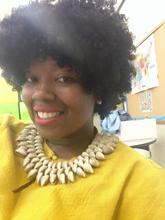 Bio: Shirley Jones-Luke is a poet and a writer. Ms. Luke lives and works in Boston, Massachusetts. She has an MFA from Emerson College. In addition, Ms. Luke is a teacher for the Boston Public Schools. Her work has been published in Adelaide, Damfino, Deluge, ENUF, Fire Poetry and Mass Poetry. 7/16/2017 Poetry by Julie HoggNature Lover Like a mixed-species flock, we rode with a jackdaw, perpendicular to each other, leaking diesel from the sump, throttling ritual magic, habitually interrupting all natural mellifluous noises of nature, tactile drawn borderlines of animal, woman, man, across wheat in a vale, chilled on the pillion, blind alley submission, nocturnal creatures at daybreak, cryptically silent, lack of sleeping bleary black owl eyes. We stopped, I ran off, you caught it by short rufous rounded wings, swiftly twisted its neck, a dead bird never sings, snared skinned rabbits stiff in headlights never breathe, nor a contorted red deer in a deep freeze. Pillarbox Overshot a heady hairpin reciting it again into this August golden valley where we know who we are and we are who we knew, all panoramic sapient allsorts apodictic, watertight, how it runs through us like rock we are peppermint and erudite, how a silver marcasite viper shakes loose on my smallest finger, so I pull over myself, off an informally beaten track, admire the view, new tricks of the light, smack Vermillion lips, brush varnish over chips at the place where you met. 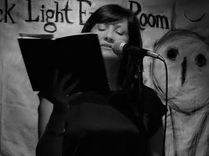 Bio: Julie Hogg is a Poet from the North East of England. She has work published in many literary journals and magazines including Black Light Engine Room, Butcher’s Dog, Proletarian Poetry, StepAway Magazine and Well Versed. Featured in anthologies by Ek Zuban, Litmus, Zoomorphic and ‘Writing Motherhood’ from Seren, her debut pamphlet ‘Majuba Road’ is available from Vane Women Press. 7/15/2017 Poetry by Darren C. DemareeWHAT WE DID TO THE PORCH LIGHT That hovering, undeterred & forced modern into our anti- belonging was too much to make it through one joint on the porch & because we wanted most of all to stomp on that fucker, we needed to go buy a ladder. We were gone for two days. It was noon when we returned & the sun had to witness us destroy what turned out to be a cheap, plastic lamp. LOST NAMES We’re all alive. We have no idea who we are. There is a head & a tail to each day & because we have no names we have no time. There is a lot of question- able licking that takes place while we try to pronounce the real names of old movie stars. Archibald Leach, he was a god? Where is the kettle corn? AIR TO BREATHE I bought a gun to bury a gun. 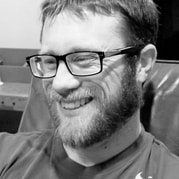 Bio: My poems have appeared, or are scheduled to appear in numerous magazines/journals, including Diode, Meridian, New Letters, Diagram, and the Colorado Review. I am the author of six poetry collections, most recently "Many Full Hands Applauding Inelegantly" (2016, 8th House Publishing). I am the Managing Editor of the Best of the Net Anthology and Ovenbird Poetry. I am currently living and writing in Columbus, Ohio with my wife and children. darrencdemaree.com/ 7/14/2017 Poetry by Yael D ShermanYou write what you know like the Eskimo so many words for snow I know tired exhausted sleep deprived the mountain I can't summit the glass sliding surface of my thoughts time and memory slip away there's no tracking in the wilderness it's snow all the way around I know bone-tired my body collapsing against the protests of my mind and giving in, curling on the couch freezing in the winter of sleep-loss I know sweet sleepiness the baby girl snuggled on my chest drifting in and out of igloo dreams together shared breath across both chests her plump arms around my neck I know hard tired Getting out of bed to shower, eat, prepare go to work, another day go go go no no no Push through Push through the exhaustion, the tired eyes the deadened mind, the shaky legs And go carry the ache of exhaustion and go No rest not yet I know tired I'm walking in the blizzard I know each wind, each snowflake Promising rest, the snow numbs Stop and be still Give in Married Life You know that I love you, right? I mean love in the way I want to tell you about the thing I read and I sent the article on different kinds of tribalism dividing our country so we could discuss it and how I want to share the photo I took of our adorable baby girl I mean love, in the fact that you took care of both kids while I worked and also folded and put away the laundry you remembered to get the colds out of the dryer (by which I mean the darks, which we don't say because it sounds vaguely racist) and how we did the warms together and made the bed before settling to watch the final two episodes of season 2 of Continuum I mean love, in the way we made love during nap-time and didn't worry about waking the kids and then right after, you threw on clothes because our six year old was trying to get into our bedroom and had a boo-boo while I lay in bed and langoured I mean love the way that you called the plumber and made the appointment and went home, missing work twice, to take care of it and how you planned, while you were at home, to make dinner for us And how you made the list on Sunday, so I could grocery shop I mean love, how we talked about Continuum and what the season finale meant until sleep claimed us both I mean love, how you let it go when I got mad at you for four hours over that one thing you said after I apologized once (I'm sorry it took so long for me to get over it) I mean love, the way you see the best and the worst in me the way you forgive my crankiness and craziness returning to me as I return to you I hate that lofty shit give me the grit not the slippery and slick fuck your exalted language full of hot air rising above all that is there till it recedes, green dots from trees give me the ground one tree, hunkered down roots exposed give me the dirt and I'll mulch it  Bio: Yael D Sherman has published in Role Reboot, thirdspace, Feminism at The Movies, Exposing Lifestyle Television, and numerous non-profit publications. She has a doctorate in Women's, Gender, and Sexuality Studies, and is raising two young children with her husband. 7/13/2017 Poetry by Abdul-Jaleel AbdallaLearning Language the arab elders would teach me their language at night, around the campfires so I could hear the distinct crackle of each word. The Tracks the last worker scrunched up the stars into stones to warm the tracks when no wheels would again. now they recall the vibrations, the crushing of rust and steel, under ancient memory lines haggard with old straggles of electricity. here flowers are the organs which secrete a murky stillness. the weeds copulate into cannibal mosaics between sunken planks. from leafless trees the sulphur of echoes veins out like cloudy roots. not even birds nest in the abandoned buildings by this gutted stream of thoughts aged into iron. only fog waiting, city-bound, in her blue coat of whispers. only bricks which chase the rails have memorised the empathy and shape of footsteps. perhaps others have wondered about its time graffitied bones and have come to lower their heads at this un-glassed oddity. maybe youth who have drifted too many times into past worlds. who now must visit dead places to be free. who cripple their names upon beams tiger striped with rust, as if it were their own creation. crouching in black hoodies they sweep myths tattooed upon coal for poetry. dusk crackles beneath their boots as they trace rust’s hieroglyphic breath; looking back to angels melodic with sleeplessness. their nails of wet feather thickening the sky with scars. watching these children they throw their prayers like tomahawks to god. their wings of black knives shudder as the children upheave the railroads of their minds. the ancient arch of this urban tundra creaks with misty sorrows: these lonely pharaohs of its tracks’ golden encryptions, eyes swallowing the fading lozenge of a linoleum sun, crumple home’s violent sounds into the tin can of silence. through the moon’s beams of thick cream the children spy a gashed colossus upon these bedraggled rails. sculpted from mist she echoes time’s murder of lives past when this place once flickered with flames of human figure. now the shadows charred upon her throat peel like waves filled with harsh stories and fall to the tracks in drops of rust, as her figure too abandons this place, and these children seep back into the hollow lunar of a hermetic city. while the tracks’ glands of rusted mythology wait nocturnal upon a sculpted field for its dancing beasts to crush time’s welted cloves. to feel those freights capsuling a million lives flying along its golden palmistry, as the night sky ties up its bandana of stars once again. 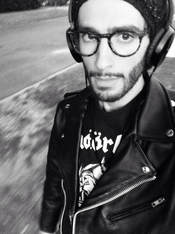 Bio: Abdul-Jaleel Abdalla is an Australian/Palestinian poet currently based in South Australia. His work has been published in Bareknuckle Poet's second anthology, Deep Water Literary Journal, NoiseMedium, Anti-Heroin Chic, and Alwasat Newspaper. 7/13/2017 Photography by Fabrice PoussinSancho's Challenge Seemingly Endless Symphony in Yellow, The Old Block Trapped
Bio: Fabrice Poussin teaches French and English at Shorter University. Author of novels and poetry, his work has appeared in Kestrel, Symposium, The Chimes, and dozens of other magazines. His photography has been published in The Front Porch Review, the San Pedro River Review and more than 200 other publications. |
AuthorWrite something about yourself. No need to be fancy, just an overview. Archives
April 2024
Categories |
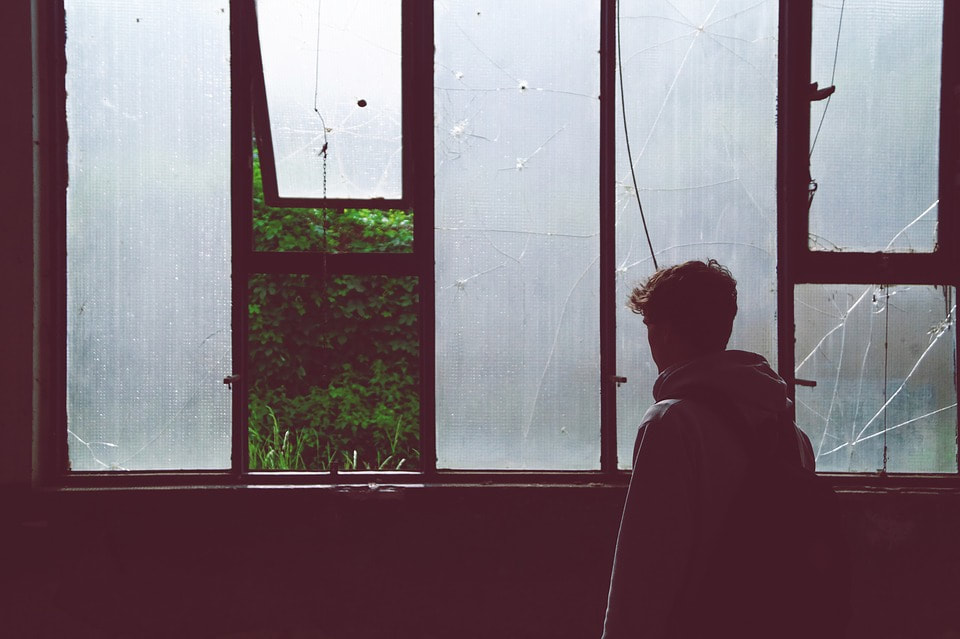

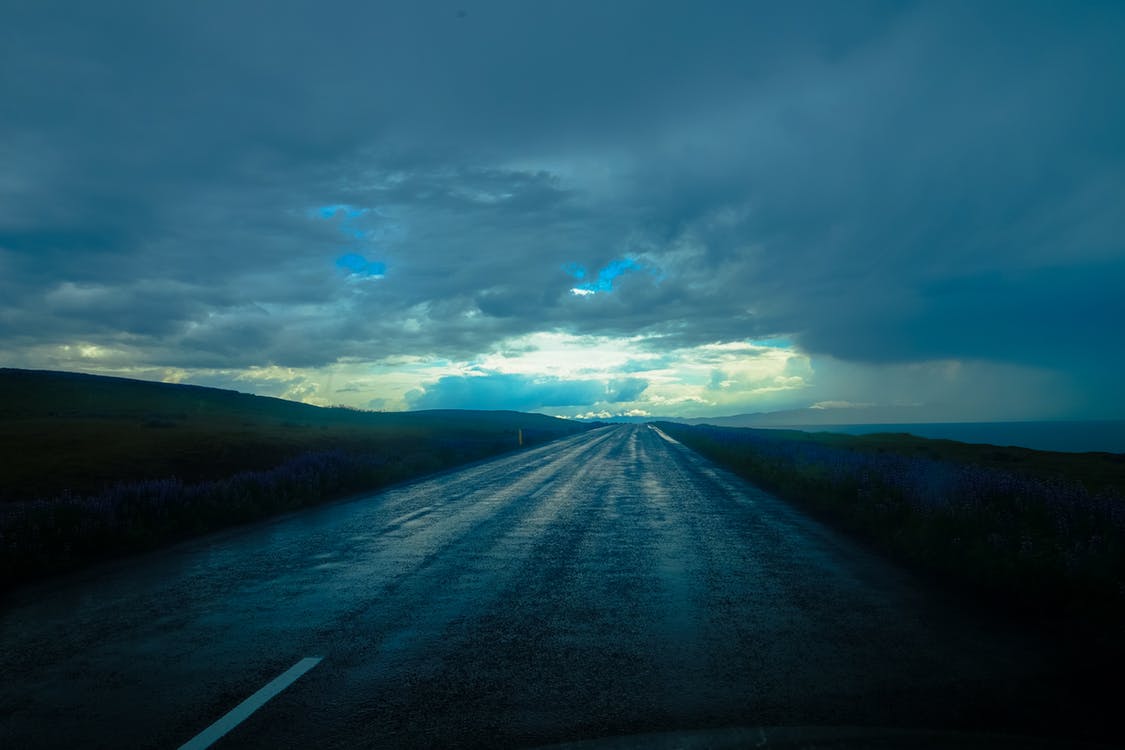
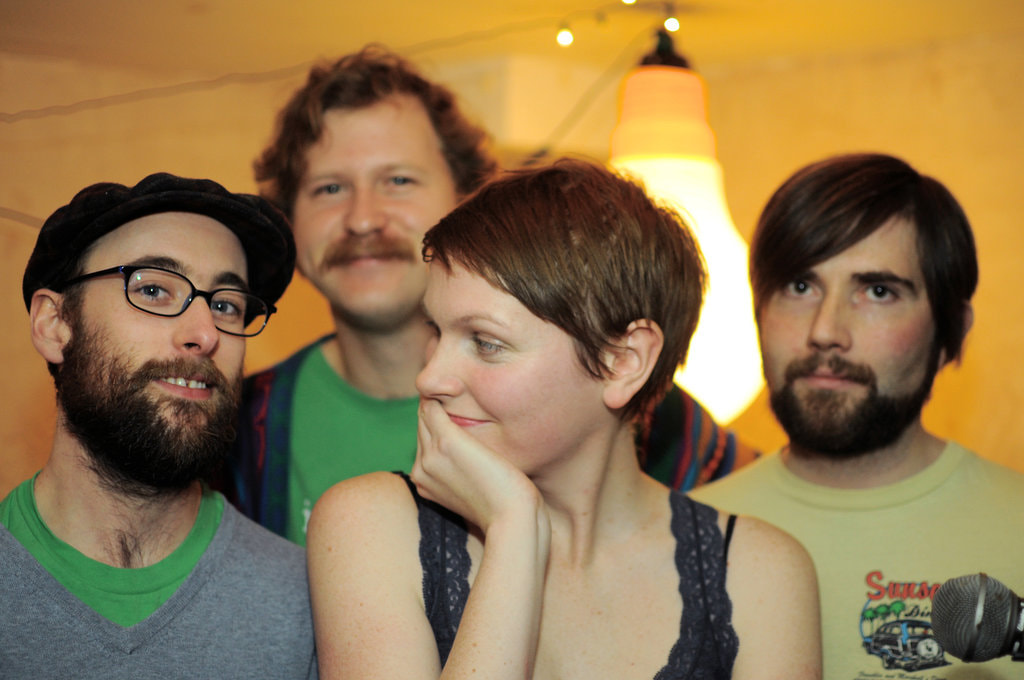
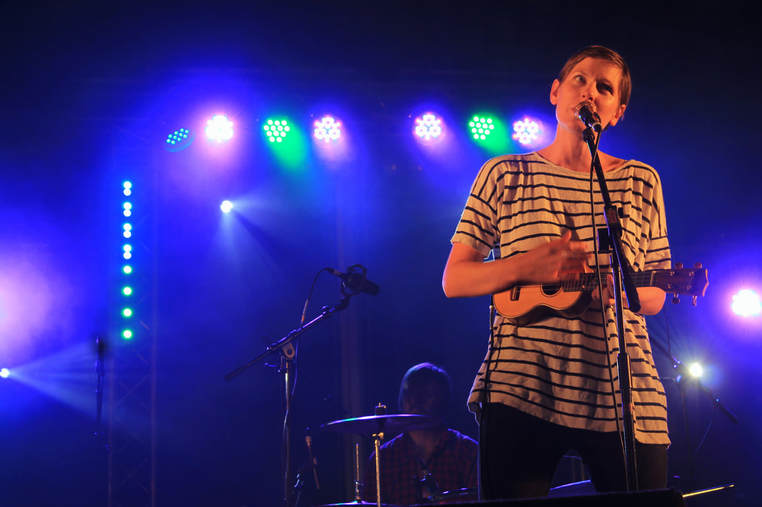
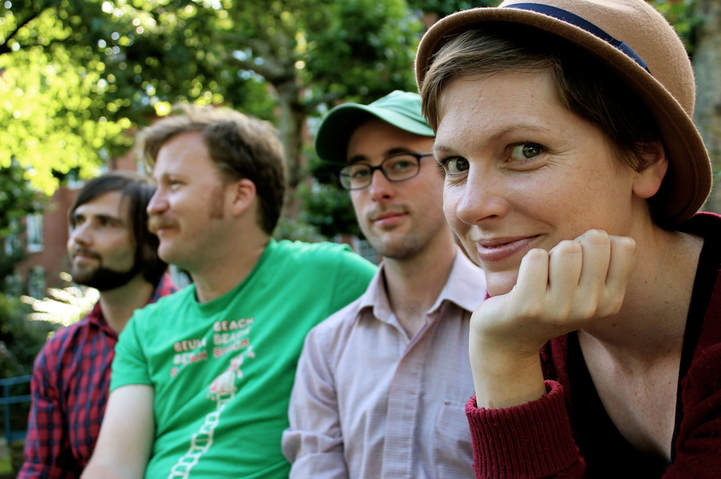
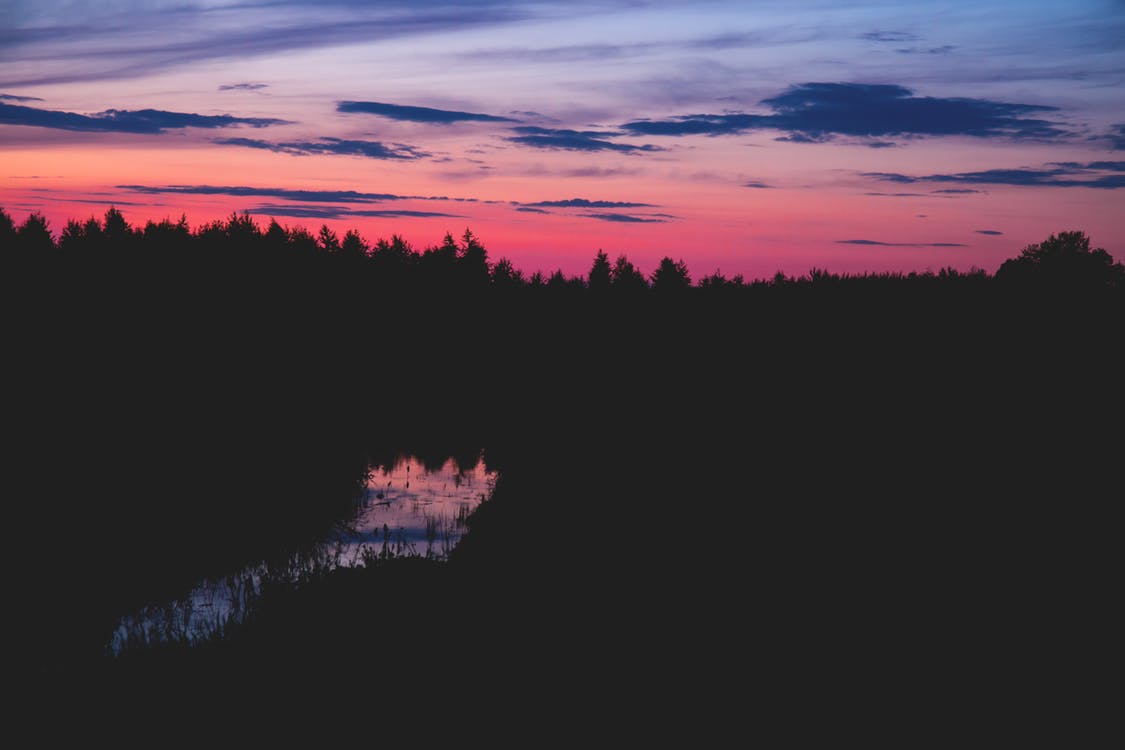
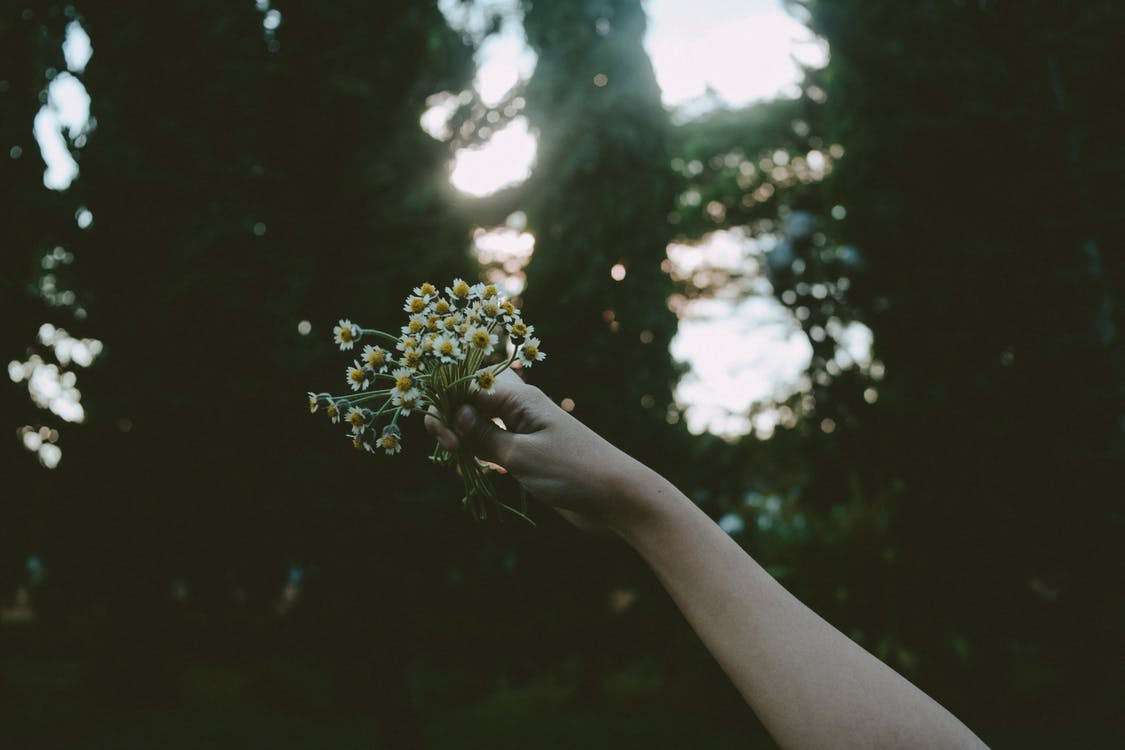
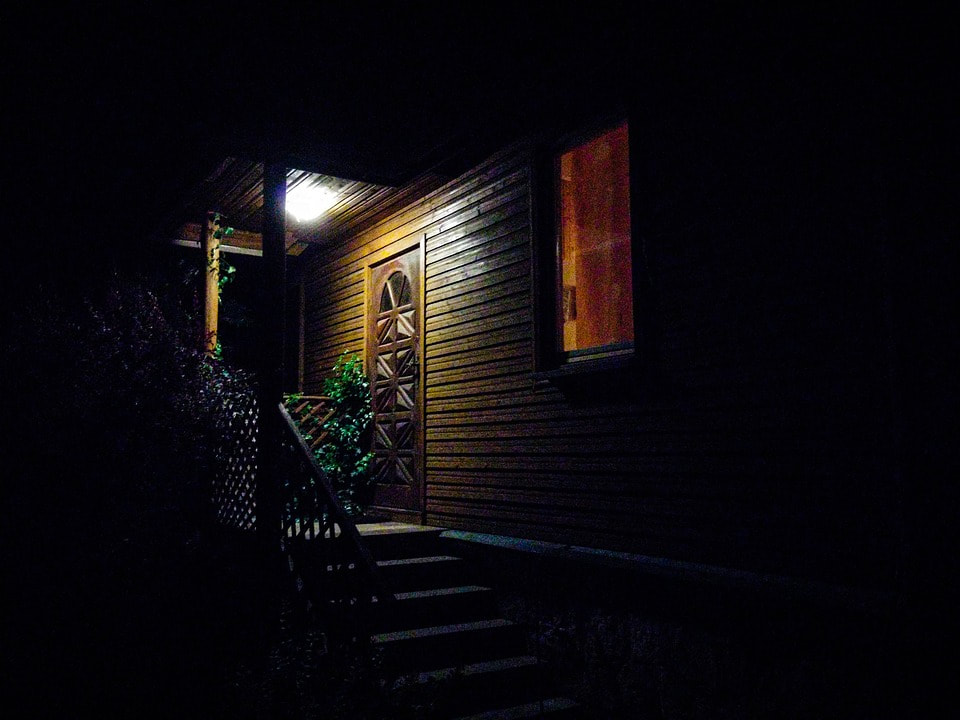
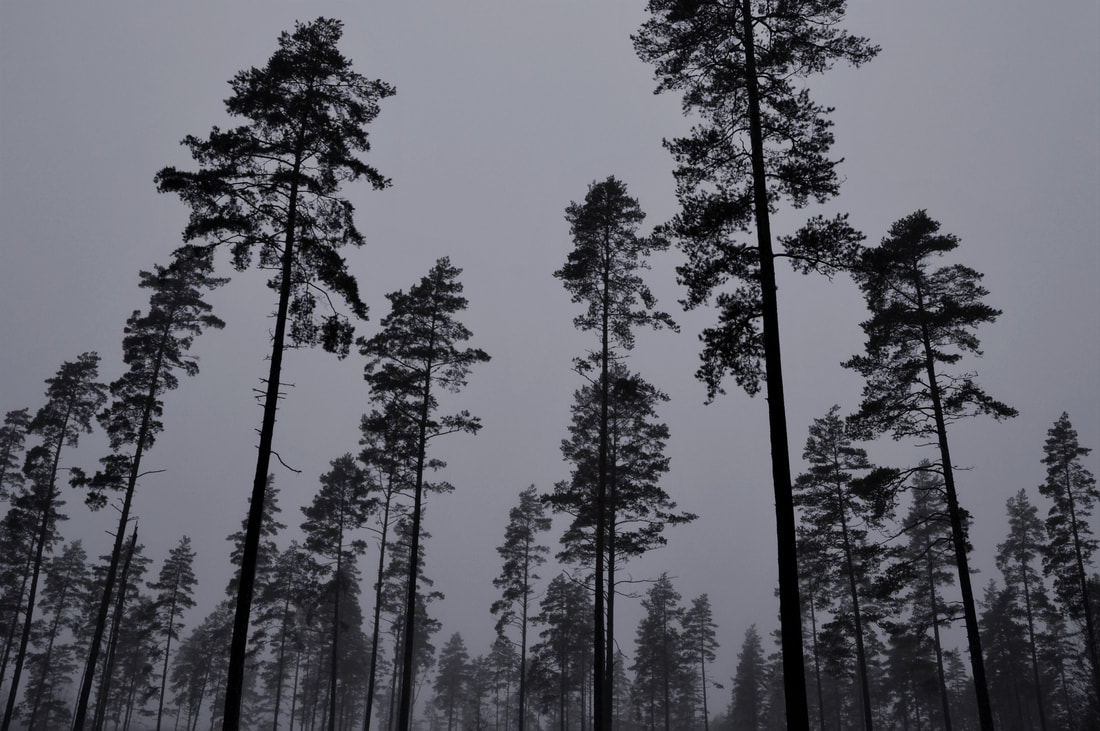
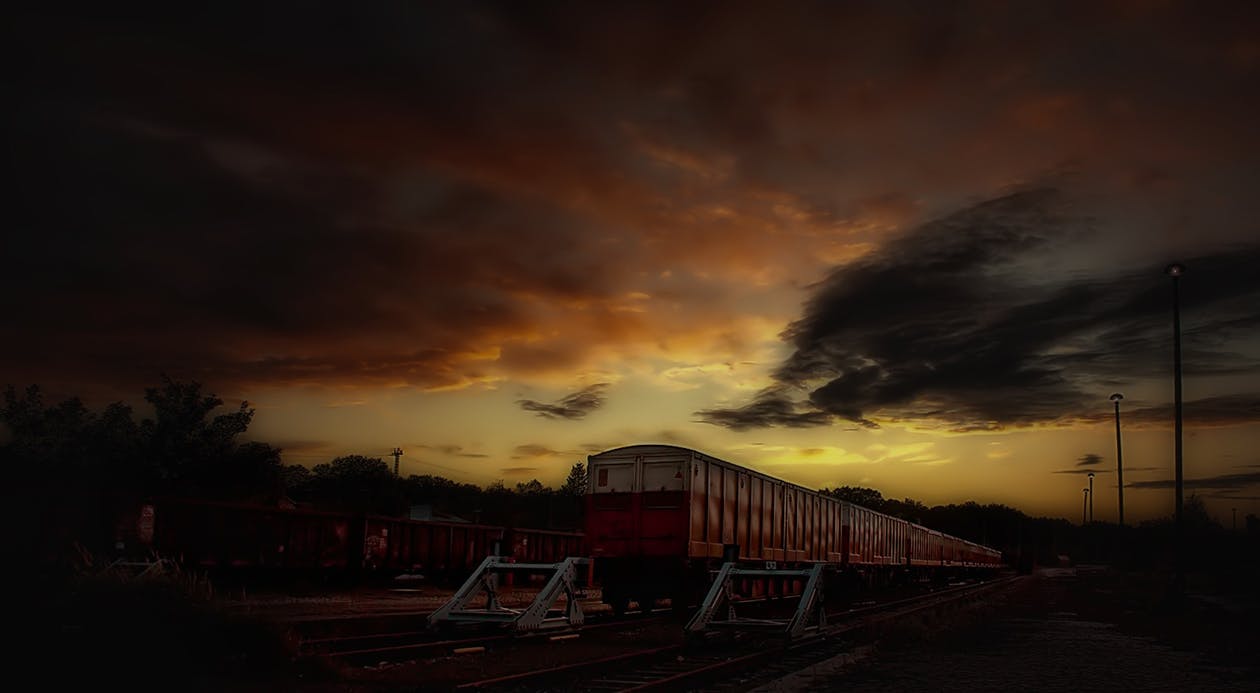
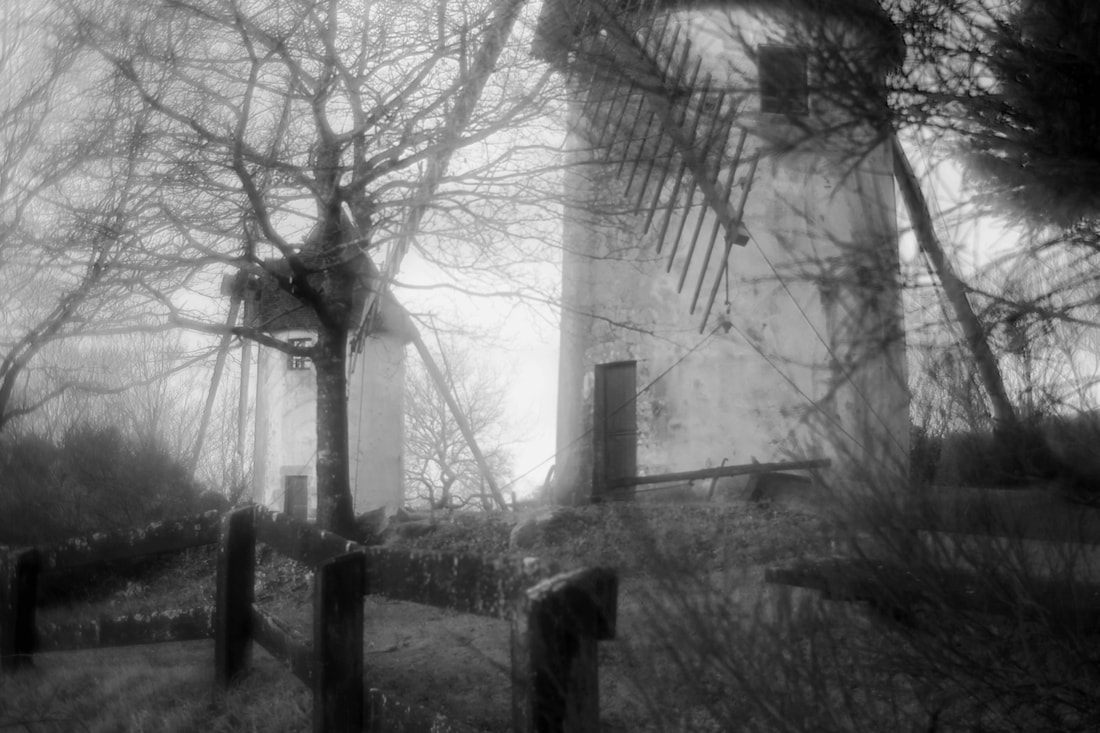
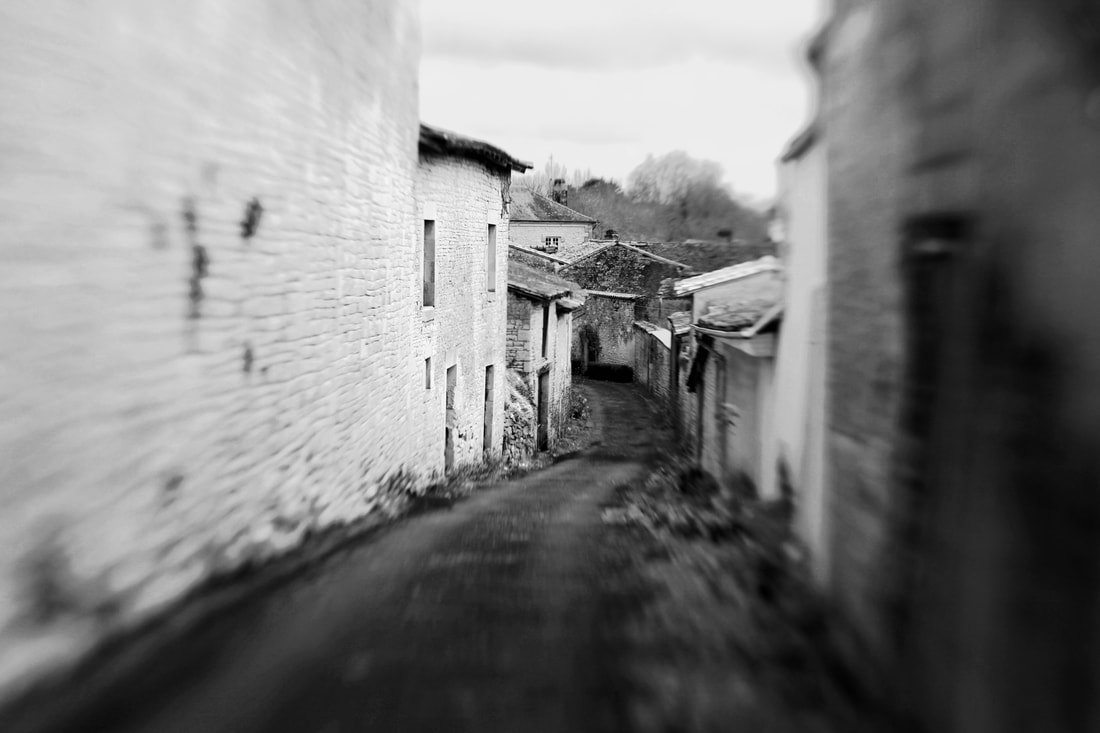
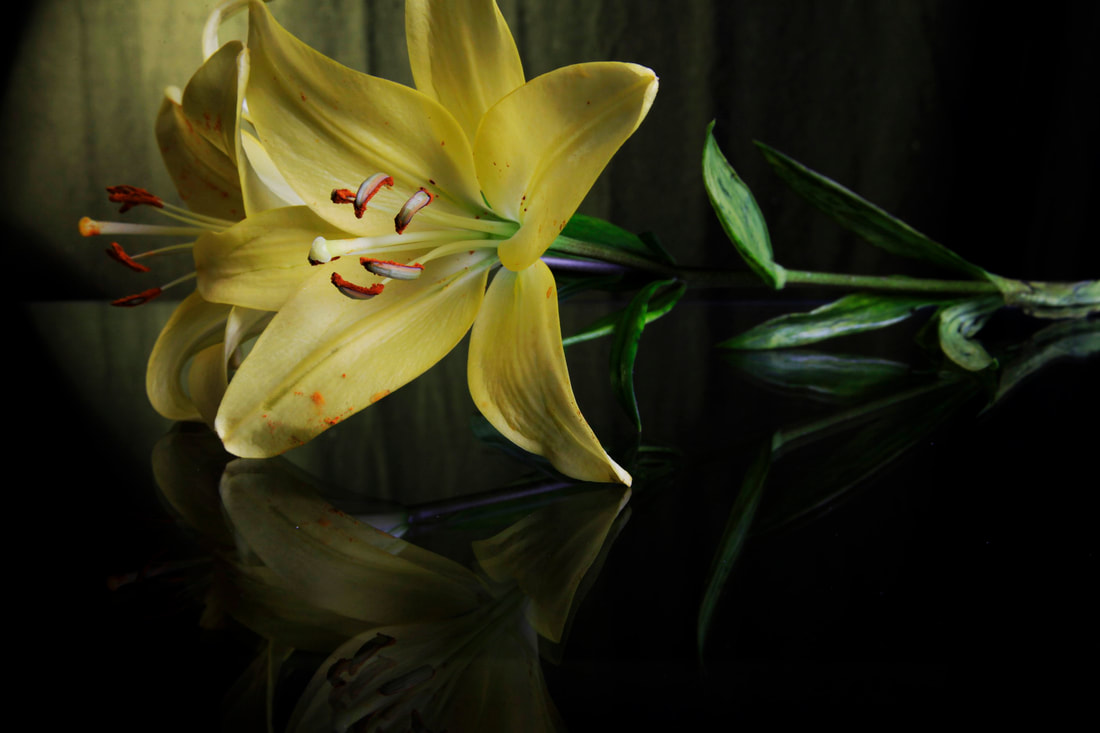
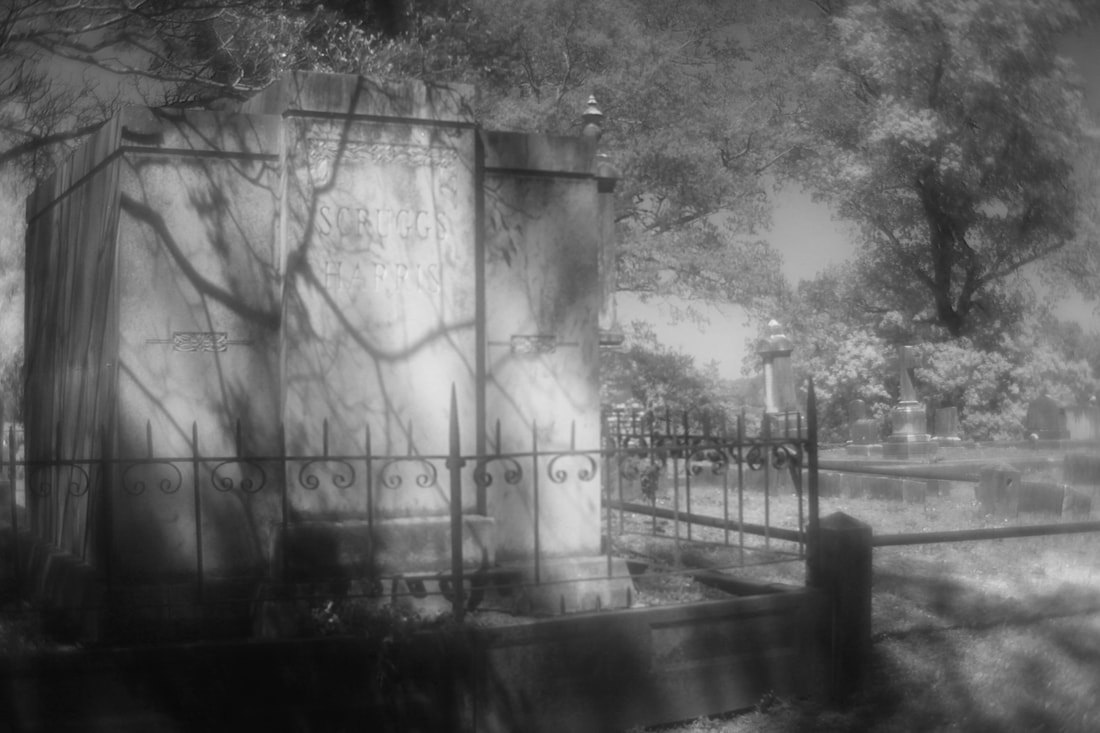
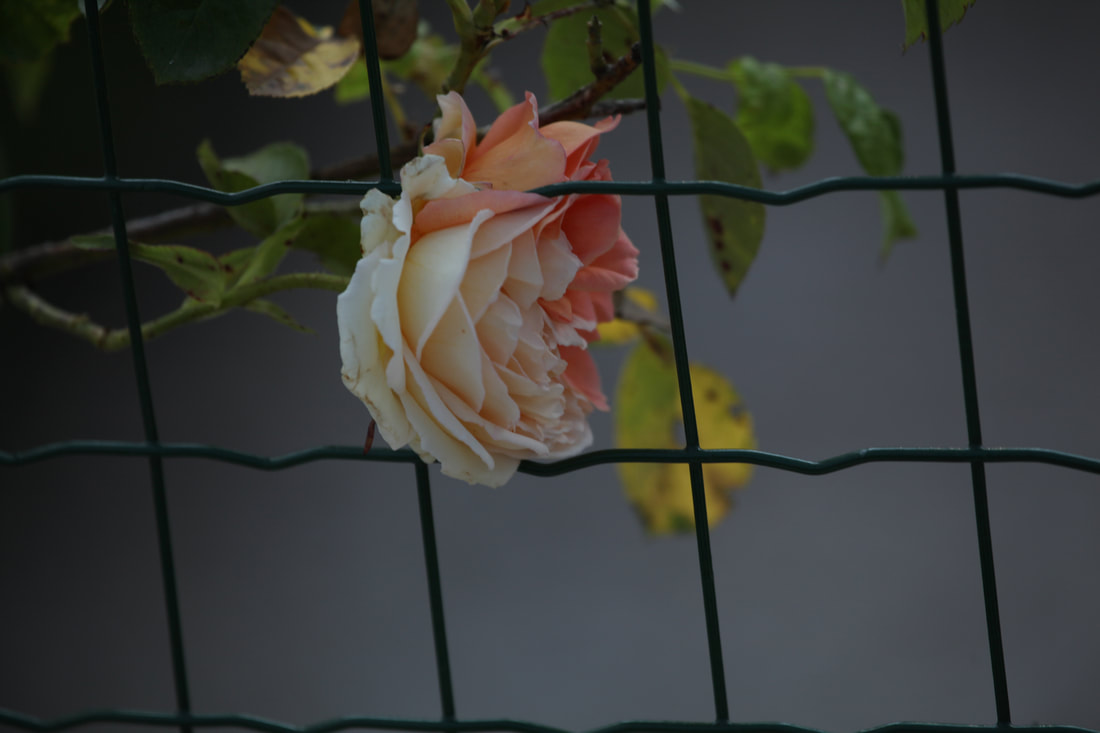
 RSS Feed
RSS Feed
